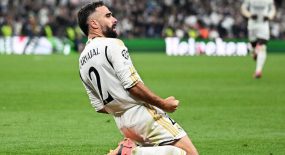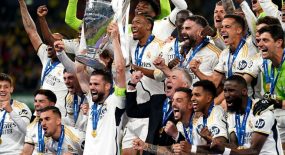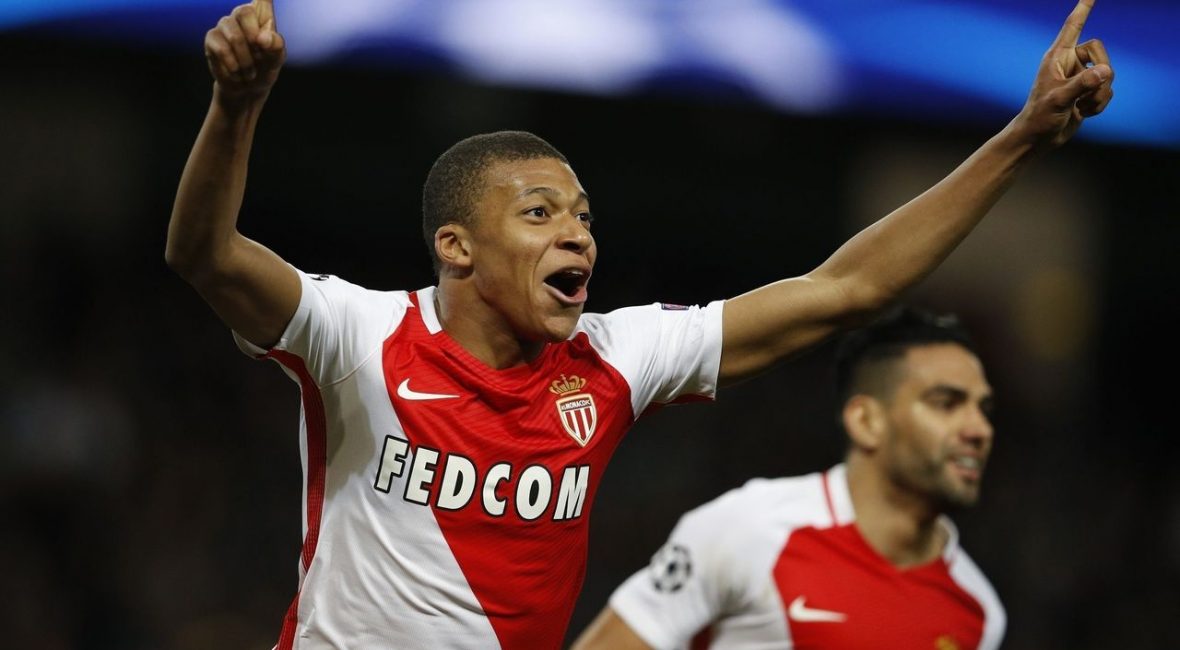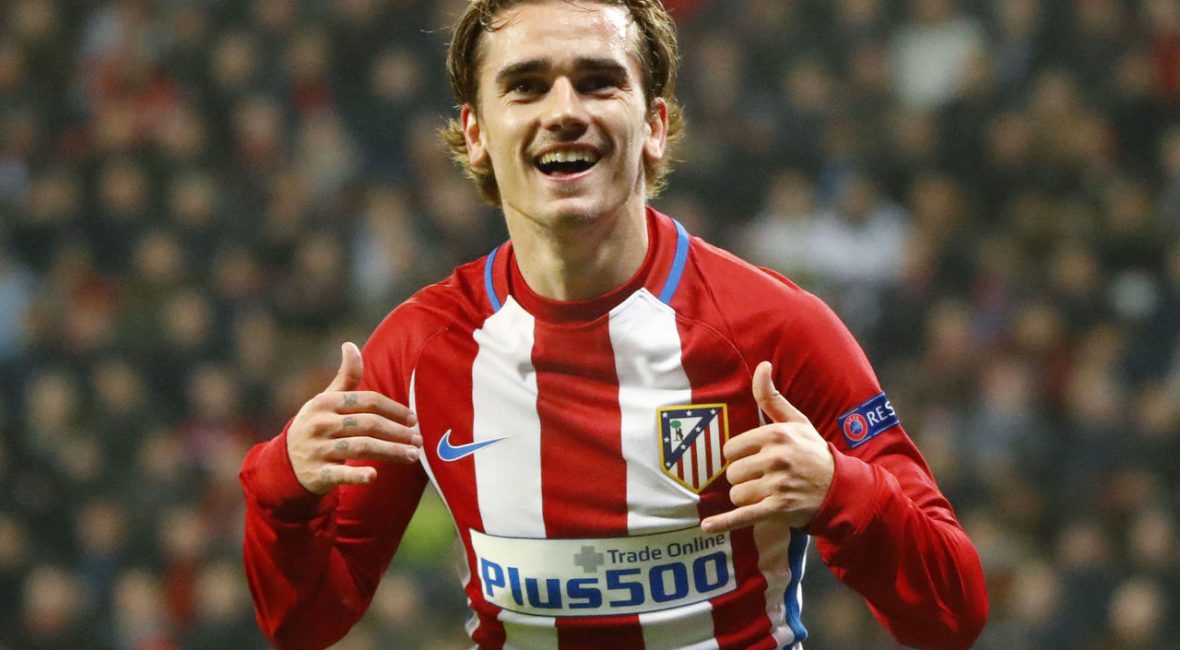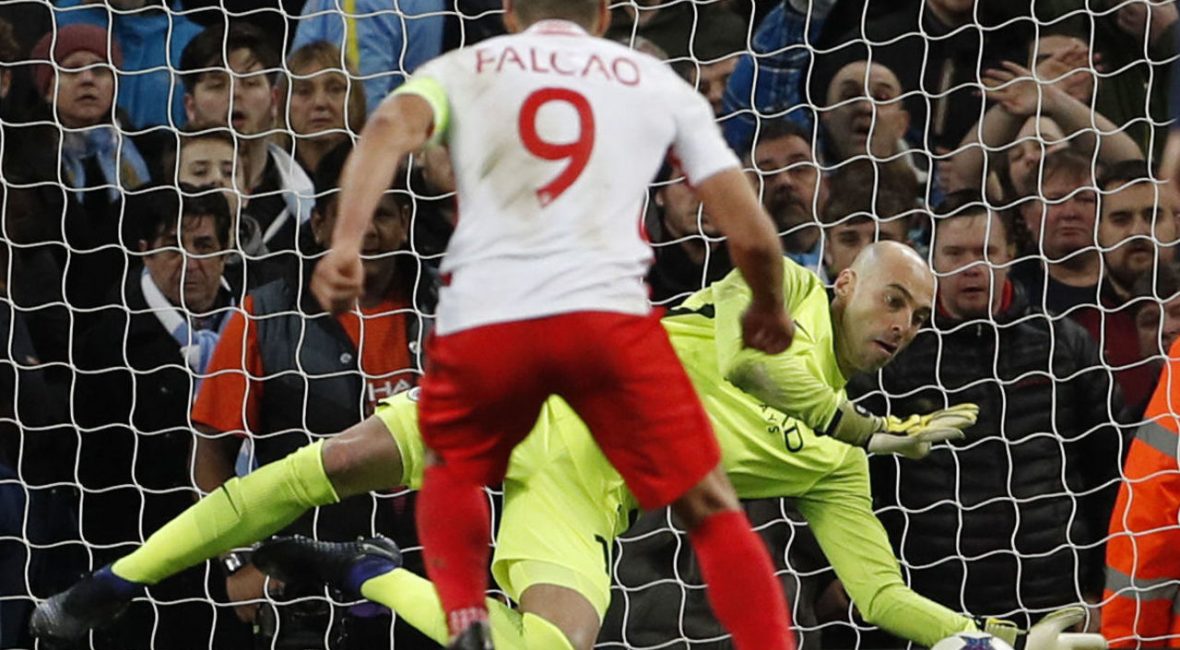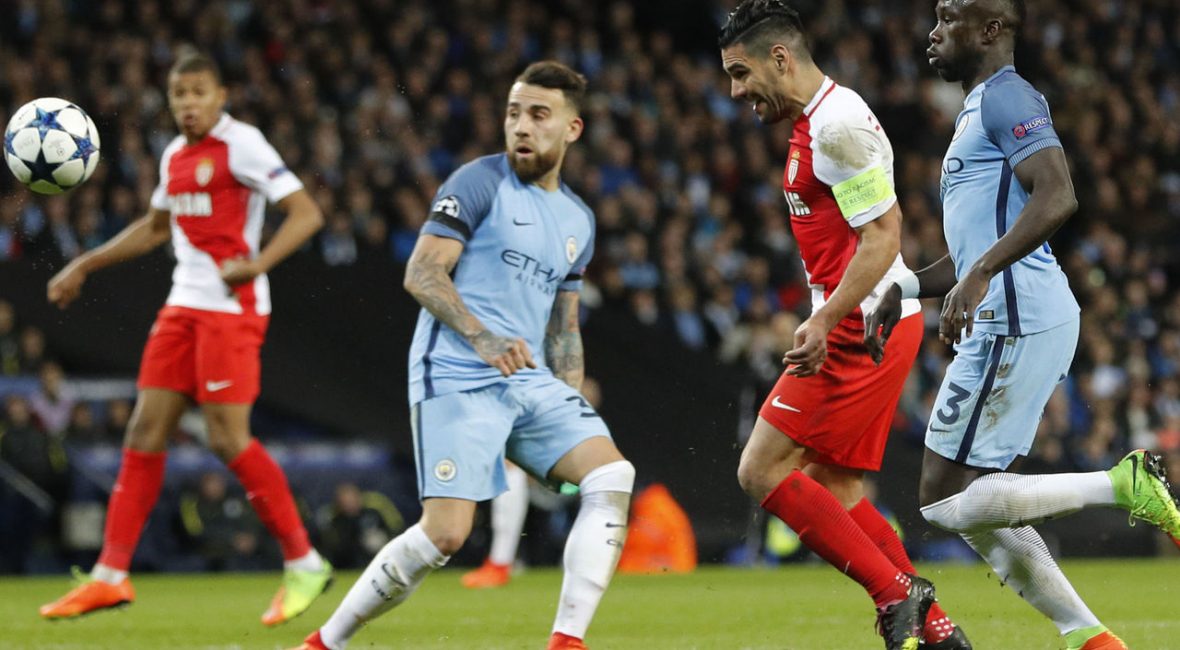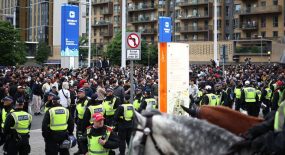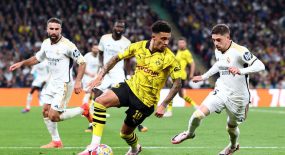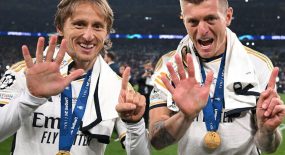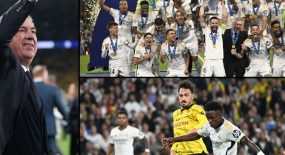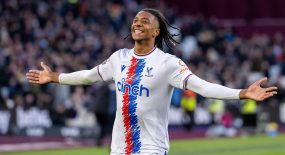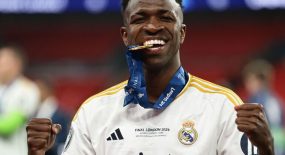Get used to hearing Kylian Mbappe’s name.
Monaco’s 18-year-old phenom, tipped to be the next superstar of French football, gave his side a 2-1 lead at Manchester City on Tuesday when the blossoming teenager latched onto a long, aerial ball and smacked a right-footed effort beyond Willy Caballero.
The goal followed an equaliser from Radamel Falcao eight minutes earlier, as a contest that promised to be enthralling delivered exactly that during an end-to-end opening half at the Etihad.
18 years & 2 months – Kylian Mbappé is the 2nd youngest French player to score in the CL after Benzema (17 years & 11 months). Monumental. pic.twitter.com/tfuFiaT6AV
— OptaJean (@OptaJean) February 21, 2017




